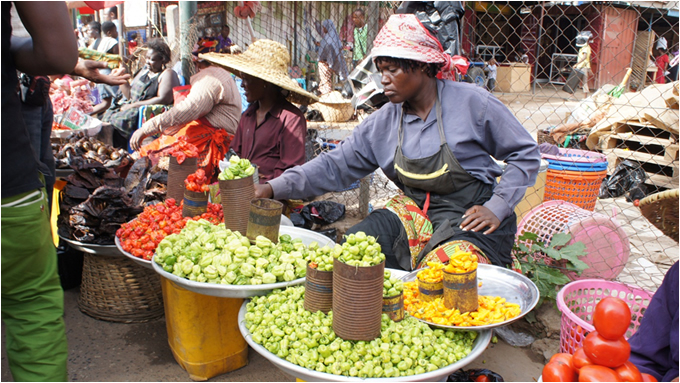|
Getting your Trinity Audio player ready...
|
Ghana’s consumer inflation slowed to a 19-month low of 26.4% in November from 35.2% the previous month, the national statistical service (GSS) announced on Thursday (December 14).
This marks the fourth consecutive monthly drop since August, signifying a positive trend for the West African country’s economic landscape.
The median estimate of five economists surveyed by Bloomberg was for price growth to ease to 27.7%.
According to chief government statistician Samuel Kobina Annim, a closer look at the contributing factors reveals that food inflation played a pivotal role in driving down the overall inflation rate.
Food inflation experienced a substantial decrease of 12.6%, reaching 32.2% in November. The month-on-month rate of food inflation was reported at 0.8%, indicating a steady and controlled increase in food prices during this period.
In addition to the decline in food inflation, non-food inflation also witnessed a noteworthy easing, dropping to 21.7% in November from 27.7% in the previous month. The month-on-month rate of non-food inflation stood at 2.2%, reflecting a positive trend in the broader spectrum of consumer goods and services.
The Bank of Ghana (BoG) has held its benchmark policy rate at a record high of 30% since July, pausing after a cumulative 16.5 percentage points of tightening since November 2021.
As Ghana heads towards the close of the year, the sustained decline in inflation rates bodes well for economic stability, providing a favourable environment for sustainable growth and development. The major exporter of gold and cocoa is currently under a $3bn IMF relief package.
Source: Daily Mail GH





